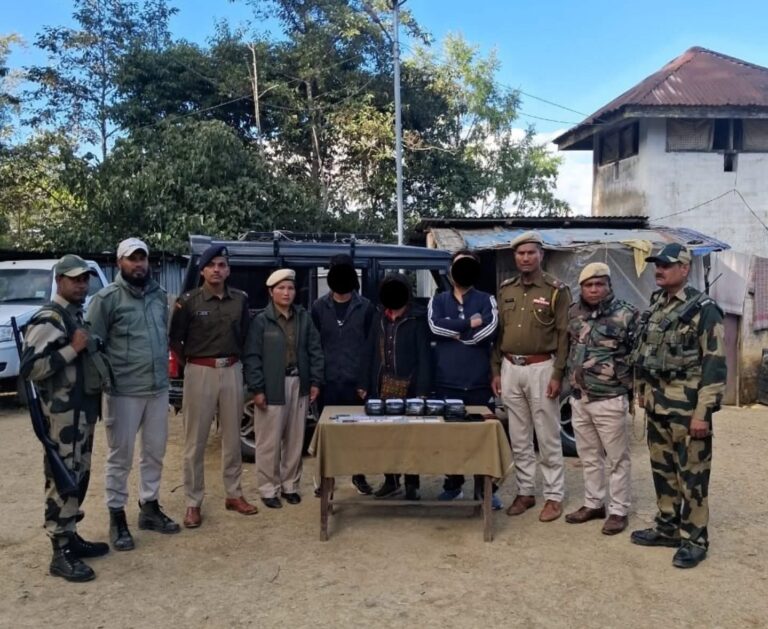Ayatollah Ali Khamenei’s Stand: Addressing Muslim Suffering in Myanmar, Gaza, and Indi
Summary of the News:
Ayatollah Ali Khamenei, Iran’s Supreme Leader, has called on the international community to be more aware of the hardships endured by Muslims in conflict-ridden areas like Myanmar, Gaza, and India. He emphasized the importance of addressing the suffering faced by these populations, urging both Muslim nations and global powers to step up in alleviating their pain.
In-Depth: Ayatollah Khamenei’s Call to Recognize and Relieve Muslim Suffering
In an increasingly complex world, conflicts continue to disproportionately affect vulnerable populations, with Muslims in regions such as Myanmar, Gaza, and parts of India experiencing some of the harshest consequences. Iran’s Supreme Leader, Ayatollah Ali Khamenei, recently voiced strong concerns over the suffering of Muslims in these areas, underscoring the need for greater attention from both Muslim countries and the global community.
Through his powerful message, Ayatollah Khamenei not only seeks to highlight the importance of international solidarity but also urges swift and significant humanitarian action to mitigate the ongoing challenges faced by these Muslim communities.
Ayatollah Khamenei’s Appeal: A Voice for the Voiceless
Ayatollah Khamenei’s message is rooted in a deep concern for the underrepresented and often ignored plight of Muslims in conflict zones. His appeal focuses primarily on three regions: Myanmar, Gaza, and India. These areas, though geographically diverse, share a common thread—Muslim communities within their borders have been subjected to systematic violence, discrimination, and human rights violations.
His rhetoric emphasizes that the suffering in these regions should not be treated with indifference. Khamenei’s words are aimed not only at Muslim leaders but also at world powers and humanitarian organizations, urging them to rise above political interests and prioritize human welfare.
The Crisis in Myanmar: The Rohingya Genocide
One of the central issues raised by Khamenei is the Rohingya crisis in Myanmar. Since 2017, the Rohingya Muslim community has faced a brutal crackdown by Myanmar’s military, forcing hundreds of thousands to flee to neighboring Bangladesh. The international community, including Khamenei, has repeatedly condemned the violence, calling it a genocide and a violation of basic human rights.
The Rohingya have long been treated as stateless, their rights stripped away by successive governments. The military’s violent campaign against them—marked by mass killings, rapes, and the burning of villages—has left the international community in shock. Despite the global outcry, the Rohingya crisis has yet to see a meaningful resolution. Ayatollah Khamenei’s recent remarks bring renewed attention to this ongoing atrocity, reminding the world of the urgent need for intervention.
Gaza: A Perpetual Humanitarian Crisis
Another focal point of Khamenei’s appeal is Gaza, a region that has been at the center of the Israeli-Palestinian conflict for decades. The densely populated strip, home to nearly two million people, has suffered repeated cycles of violence, leading to widespread devastation. For the people of Gaza, basic necessities like clean water, electricity, and medical supplies are in constant short supply, exacerbated by blockades and military aggression.
Khamenei’s statement on Gaza aligns with his broader stance on the Palestinian struggle, which he has consistently supported. His call for action highlights the need for Muslim nations to offer political and humanitarian support to the people of Gaza, who have long endured the consequences of the conflict. The international community, according to Khamenei, has a moral obligation to prevent further suffering and facilitate meaningful peace efforts.
Muslim Discrimination in India: An Ongoing Concern
Ayatollah Khamenei also raised concerns about the treatment of Muslims in India, a country that, while democratic, has faced criticism for its handling of religious tensions. India, with a large and diverse Muslim population, has seen instances of communal violence, discrimination, and political marginalization of its Muslim citizens, particularly in recent years.
Khamenei’s remarks on India likely refer to several issues that have attracted international attention, including the Citizenship Amendment Act (CAA), the situation in Kashmir, and rising anti-Muslim rhetoric in certain political circles. His call for attention to India’s Muslim community seeks to ensure that these citizens receive the protection and rights they are entitled to, in line with India’s constitutional principles of equality and secularism.
A Call to Action: Khamenei’s Vision for Muslim Unity
One of the core messages in Khamenei’s address is the importance of Muslim unity. He believes that if the Muslim world stands together, it will be better equipped to tackle issues of oppression and discrimination faced by Muslim communities worldwide. This is particularly significant in regions like Gaza and Myanmar, where geopolitical complexities often prevent swift international action.
Khamenei urges Muslim-majority countries to adopt a more proactive approach, offering not just rhetorical support but tangible assistance in the form of humanitarian aid, diplomatic efforts, and political pressure. His vision for unity is not just about shared faith but also about a collective responsibility to ensure justice and protection for all Muslims, no matter where they are.
Global Responsibility: Beyond Muslim Nations
While Khamenei’s message is primarily aimed at the Muslim world, it carries a broader implication for the global community. He stresses that the suffering of any group, including Muslims, should not be viewed in isolation but as part of a shared human experience. For him, the moral obligation to prevent human rights violations transcends religious and national boundaries.
He encourages the international community—including Western powers, human rights organizations, and global institutions—to recognize their role in alleviating suffering. This can involve diplomatic intervention, economic sanctions, or direct humanitarian aid, depending on the circumstances. Khamenei’s appeal underscores the idea that indifference to suffering is complicity, and the world cannot afford to ignore these crises.
The Role of Diplomacy in Addressing Muslim Suffering
Diplomacy remains one of the most effective tools in addressing global crises. Khamenei advocates for the use of diplomatic channels to resolve conflicts that disproportionately affect Muslim populations. Whether through peace negotiations in Gaza, diplomatic pressure on Myanmar’s military regime, or bilateral talks with Indian authorities, Khamenei believes that diplomatic efforts can pave the way for long-term solutions.
In the case of Myanmar, Khamenei urges international bodies like the United Nations and ASEAN to take a more active role in mediating the conflict and ensuring that Myanmar’s government upholds the human rights of all its citizens, including the Rohingya. For Gaza, Khamenei calls on Muslim nations to collaborate with global powers to broker peace and end the humanitarian crisis.
The Importance of Humanitarian Aid and Support
Beyond political solutions, Khamenei highlights the immediate need for humanitarian aid to the affected regions. For populations in Gaza and Myanmar, basic human needs such as food, clean water, and healthcare remain unmet. Humanitarian organizations and governments worldwide must step in to provide relief, addressing the immediate suffering while longer-term solutions are sought.
For Myanmar’s Rohingya, international aid is crucial, especially for the refugees who have fled to Bangladesh. For Gaza, where ongoing conflict has decimated infrastructure, Khamenei calls for urgent rebuilding efforts to restore basic services and help civilians recover from the destruction caused by years of violence.
Khamenei’s Global Message: Compassion as a Catalyst for Change
At the heart of Ayatollah Khamenei’s appeal is a message of compassion and shared humanity. He believes that by recognizing the suffering of others, we can begin to take meaningful action to alleviate it. His words are a call to arms for global citizens—not in the literal sense, but in terms of standing up against injustice, advocating for the oppressed, and offering assistance to those in need.
As global challenges continue to evolve, Khamenei’s message serves as a reminder that compassion and solidarity remain the most powerful tools we have in the fight against human suffering. Whether it’s through political advocacy, humanitarian aid, or simply raising awareness, each of us has a role to play in creating a more just and equitable world.
FAQs
- What is Ayatollah Khamenei’s message regarding Muslim suffering?
Ayatollah Khamenei called attention to the hardships faced by Muslims in regions like Myanmar, Gaza, and India, urging the international community to address these crises with compassion and action. - Why is the Rohingya crisis important to Khamenei’s message?
The Rohingya crisis exemplifies the extreme suffering of Muslims in Myanmar, which Khamenei describes as a genocide that the world cannot ignore. - How does Khamenei view the situation in Gaza?
Khamenei has consistently supported the Palestinian cause, highlighting the humanitarian crisis in Gaza as a critical issue for the Muslim world to address. - What concerns does Khamenei have about India?
Khamenei raised concerns over discrimination and violence against Muslims in India, particularly in relation to the Citizenship Amendment Act (CAA) and the situation in Kashmir. - What is Khamenei’s solution to these crises?
Khamenei emphasizes the importance of Muslim unity, diplomatic efforts, and humanitarian aid in addressing the suffering of Muslim communities worldwide.




